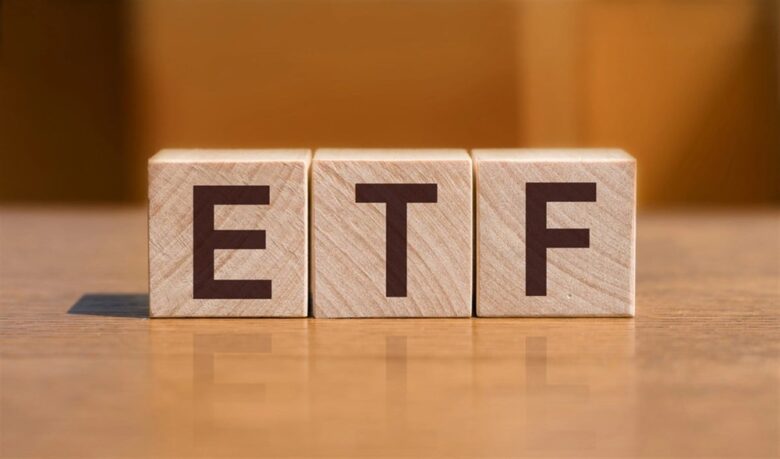The financial world has undergone enormous changes recently. People who invest small amounts, also known as “micro-investors,” are looking for intriguing ways to grow their wealth without having to hold a large sum. Exchange-Traded Funds (ETFs) are one of the most ideal investment vehicles for these investors. ETFs are ideal for those who want to start small and expand their portfolio over time, as they combine the advantages of mutual funds with the convenience of stock trading.
ETFs are an excellent choice for both novice and experienced investors because they are inexpensive and easy to trade and offer exposure to a wide range of markets. They also allow you to diversify your risk without having to invest a large amount at once, which is crucial for those just starting with small investments. With more and more people getting into micro-investing, it’s more important than ever to understand why ETFs are an excellent option for making smart financial decisions.
Easy to Start, Low Entry Cost:
One of the biggest advantages of ETFs for small investors is their ease of entry. Unlike some traditional investments that require significant initial capital, ETFs allow you to invest with as little as the amount you would spend on a single stock. With ETFs, anyone can start investing with as little as $50 or $100, depending on the ETF and the platform used. Some platforms allow fractional share purchases, meaning you can buy a portion of a stock if you can’t afford the full amount. Thanks to the low entry barrier, small investors can start investing in the financial markets sooner, without having to wait until they have substantial capital. These small, regular contributions can accumulate over time and yield significant returns, demonstrating that even a small start can lead to great success.
A Built-in Way to Diversify Risk:
One of the most fundamental investment rules is to diversify your funds. This is especially true for those who cannot afford high risk. ETFs offer the inherent advantage of diversification because they invest in various securities, such as stocks, bonds, and commodities, within a single fund. The S&P 500 ETF, for example, allows investors to buy shares of 500 different companies simultaneously, significantly reducing the impact of a single company’s underperformance. This is particularly beneficial for small investors, as this level of diversification is difficult to achieve by purchasing individual stocks with only a small amount of capital. This built-in diversification helps reduce market volatility and provides a stronger foundation for long-term growth, making ETFs an ideal and safe choice for small investors.
Low Cost and Cost-Effectiveness:
High investment costs can reduce returns, especially when only a small amount is invested. However, ETFs have lower expense ratios than mutual funds and other managed investments. Most ETFs are passively managed, meaning they attempt to replicate the performance of an index rather than employing expensive fund managers to select stocks for them. This passive management approach lowers costs, allowing small investors to retain more of their money. ETFs are also generally more tax-efficient than other types of investments, which can lead to higher long-term profitability. For those on a budget, keeping prices low is crucial. ETFs excel at this, allowing you to invest without sacrificing quality or performance.
Real-Time Trading, Flexibility, and Convenience:
While mutual funds can only be bought and sold at the end of the trading day, ETFs are traded on the stock exchange just like individual stocks. This means small investors can buy and sell ETFs at any time during trading hours, allowing them to quickly respond to market changes or opportunities. ETFs also offer investors exposure to a wide range of sectors, asset classes, and even foreign markets. This allows them to tailor their portfolio to their interests and financial goals. Some specialized ETFs allow you to invest small amounts in specific sectors, such as renewable energy, technology, or developing countries. This flexibility allows small investors to participate consistently and make their own investment decisions.
Small Investments for Long-Term Growth:
For small investors, a major advantage of ETFs is that they allow you to gradually build wealth. The powerful benefits of compounding mean that even small, consistent gains can lead to significant growth. By reinvesting income and holding ETFs for the long term, small investors can benefit from market growth without making a large investment. Many investors use dollar-cost averaging, which means they regularly invest a fixed amount, regardless of market trends. This strategy reduces the risk of missing market opportunities and ensures you stay on track to achieve your financial goals. With patience and discipline, ETFs can help small investors grow their wealth and maintain their long-term financial stability.
Conclusion:
ETFs have changed the way people invest, making the stock market more accessible to those with limited resources. They offer small investors a low-cost, flexible, and diversified way to build wealth over the long term. ETFs are a smart and practical option for anyone starting to invest because they don’t require a large capital investment, offer inherent diversification, are cost-effective, and enable real-time trading.
While no investment is completely safe, ETFs make it easy and affordable for even small investors to participate in a wide variety of markets and sectors. If small investors can leverage these advantages and stick to a plan, they can gradually achieve their financial goals without being overwhelmed by the market’s complexity. As technology and new financial products make investing easier, ETFs remain one of the best ways for those who want to start small and achieve big dreams.
FAQs:
1. What is an ETF? How does it work?
An ETF, or exchange-traded fund (ETF), is an investment vehicle consisting of a group of assets, such as stocks, bonds, or commodities, and is traded on a stock exchange just like stocks. Investors in ETFs purchase shares, which represent a portion of the fund’s assets.
2. Why are ETFs a smart choice for beginners?
ETFs are ideal for beginners because they are easily accessible, offer rapid diversification, are inexpensive, and require only a small investment. This makes them ideal for small investors.
3. Can I buy ETFs with a small investment?
Yes, you can buy a large number of ETFs for the price of a single share. Some platforms even allow fractional shares, meaning you can start investing with even less capital.
4. Are ETFs less risky than stocks?
ETFs are generally less risky than individual stocks because they hold a range of assets and spread the risk across multiple investments. However, no investment is completely risk-free.
5. Do ETFs pay dividends?
Many ETFs pay dividends based on the earnings of their investments. Investors can receive these dividends in cash or reinvest them in the stock market, where they can grow over time.




